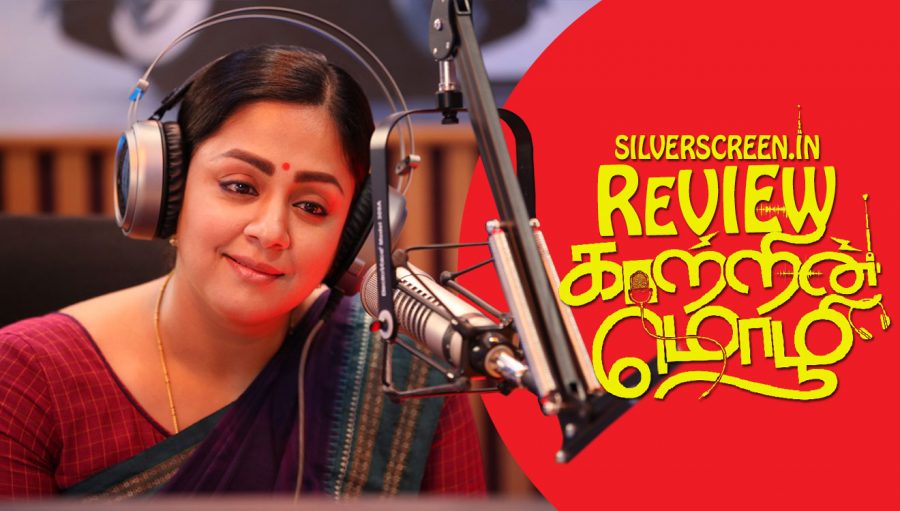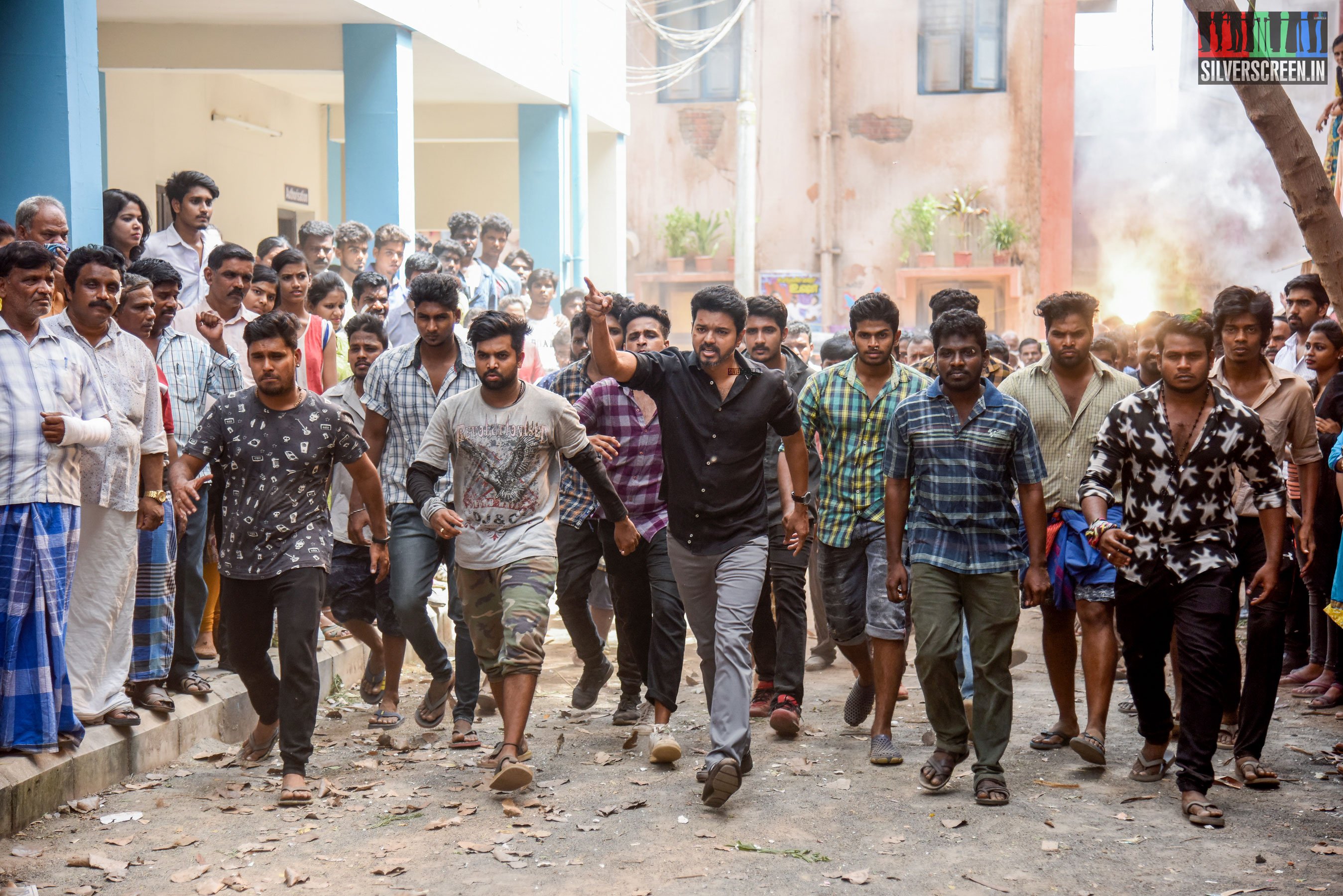Director: Radha Mohan
Cast: Jyotika, Vidhaarth, MS Bhaskar, Manobala, Mohan Raman
Composer: A H Kaashif
For a remake of a Bollywood film, Kaatrin Mozhi seems typical Radha Mohan material, the landscape populated with his people, the tale right up his alley – a family that grapples with change, or a situation so unique that it threatens to rend it asunder. Attribute it to the presence of MS Bhaskar who repeats his cranky-but-heart-of-gold neighbour act or Jyotika now without the ‘h’, but there’s an overwhelming feeling of watching a futuristic, reinvented version of Mozhi. That’s what it is, though, right down to the title. Here’s a married couple, one part of them navigating a turbulent work life while the other supports from home, with dreamy thoughts about the world outside.
But what is noteworthy about Kaatrin Mozhi – despite being a Radha Mohan film, and nothing to the director’s credit of course – is that it doesn’t quite reinforce societal conventions. Granted, the husband is sulkier, the wife guiltier, and the setting more dramatic than the original, but for the director, whose earlier film – the very judgmental 60 Vayadhu Maaniram – was about ‘unfeeling’ adult children who abandon parents in monsterly care facilities, the premise of Kaatrin Mozhi is liberal indeed. For instance, there’s Jyotika who talks naughty – well, as chastely naughty as can be given the family audience she commands – and seems progressively comfortable in an intimate setting. Of course, the couple rarely touch each other; they just talk. There are some cursory scenes in bed, with an attempt at suggestive banter completely devoid of sexual undertones (really!), but Jyotika is right there, steering conversation, and trying to be …feisty, that one is overcome by her earnestness and forgets the platonic-for-your-eyes marriage. Not that we’d like metaphorical imagery too hey, but then, Radha Mohan treats his audience as children. Or, those who’d bring children to watch his movie. The ‘adult’ scenes are therefore almost clinically executed, and so are the characterisations – there’s no room for even the subtle sultriness that Vidya Balan exuded in the original.
For that prescience though, Radha Mohan is amply rewarded; the theatre is filled with families of all sizes, and women of all ages. Jyotika is perhaps the primary draw, her expressions exaggerated, comic timing more grand than funny, and being generally exuberant in a bid to compensate for both. Incidentally, the funniest of lines belongs to neither lead, but to a supporting actor when the film begins.
The milieu of Kaatrin Mozhi isn’t vastly different from that of Tumhari Sulu, except for Manobala who just can’t seem to tire of his sleazy doctor / teacher / neighbour role (the kids be damned). Jyotika as Vijayalakshmi – the wife who holds the fort at home – longs for some fresh air, while Vidhaarth (Balu) is torn between the desire to make her happy, and general apprehension at the change. He’s not the brash male lead characteristic of Tamil cinema, and what a relief that is. In TS, Balan affectionately calls her husband a ‘गाय’ for he exhibits none of the socially-conditioned behaviour that men in cinema are often wont to do, and is almost meek human. Vidhaarth’s Balu is modelled after him. There’s only quiet – if reluctant – acceptance from him when he finds out that his wife’s new job involves some late-night banter on radio with lonely men. But the scenes succeeding that are treated with more melodrama – and simpering judgment – than in the original. If in TS, Manav Kaul as Ashok takes it in his stride as Sulochana sleeps in after working into the night, in the Radha Mohan universe, Balu turns passive aggressive. Food still happens to be the woman’s chore – in that the director is decided.
Recommended
Kaatrin Mozhi is not starkly different from Jyotika’s 36 Vayadhinile in that it is about a woman who wants to join the workforce, and has to overcome several challenges along the way to keep at it, from convincing family members to other difficulties – almost all of them domestic. But then, women are already out there, having fought the good fight, facing more oppressive demons. Given the times perhaps, it wouldn’t be too impertinent to focus on what it really takes to sustain a job – with particular emphasis on the workplace.
*****
The Kaatrin Mozhi review is a Silverscreen original article. It was not paid for or commissioned by anyone associated with the film. Silverscreen.in and its writers do not have any commercial relationship with movies that are reviewed on the site.



